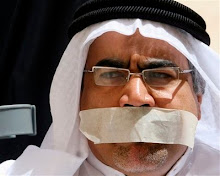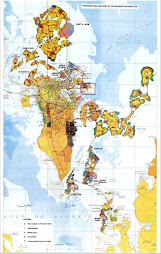
Fewer free countries in 2009: Freedom House
By Daniel Trotta
NEW YORK (Reuters) - Civil freedoms around the world lost ground for the fourth straight year in 2009 with Iraq improving, Afghanistan falling back and China acting as if it were under siege by its own citizens, Freedom House said on Tuesday.
Bahrain, Jordan, Kazakhstan, Kyrgyzstan, Yemen moved into "not free" category, raising the total to 47 from 42 in 2008. The number of electoral democracies fell from 119 to 116, the lowest since 1995.
Eighty-nine countries were designated "free" and 58 "partly free" in the report issued by the U.S.-based advocate for democracy and human rights.
The four-year deterioration marked the longest decline since Freedom House began its annual survey in 1972.
Yemen, the Arab world's poorest nation, saw political rights deteriorate in the face of rapidly worsening security and the "increased marginalization of the parliament and other political institutions," the report said.
The report cited also "growing paranoia of even the largest and most headstrong" of the world's authoritarian powers.
"No country can compete in this respect with China, which -- despite its waxing economic and military prowess -- behaves as if it were under siege by its own citizens," the report said.
China's growing economic influence abroad helped repressive countries by providing investment free of the conditions often imposed by the West, the report's lead researcher said.
"As long as China can get strategic minerals or some kind of economic gain, they will invest in those countries," said Arch Puddington, director of research for Freedom House.
"It's a problem, especially in Africa. Some of these authoritarian countries have an option -- they don't have to carry out reforms that the United States or Europe might be demanding," he said.
While Asia was cited as a region of modest improvements, the report cited diminished freedom in Afghanistan, where a "deeply flawed presidential poll exacerbated an already unstable security situation and exposed the prevalence of corruption within the government."
Iraq, by contrast, showed improvement as the rest of the Middle East and North Africa region "suffered a number of significant setbacks."
"Iraq's political rights rating improved in light of provincial elections, which were generally regarded as fair and competitive, and due to the government's enhanced autonomy as the phased withdrawal of U.S. troops got under way," the report said.
(Editing by Alan Elsner)







